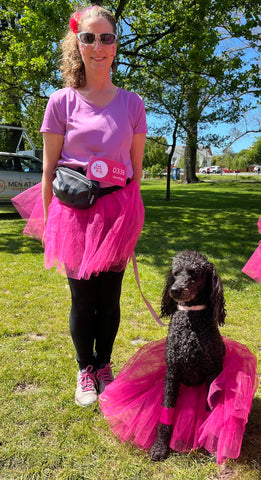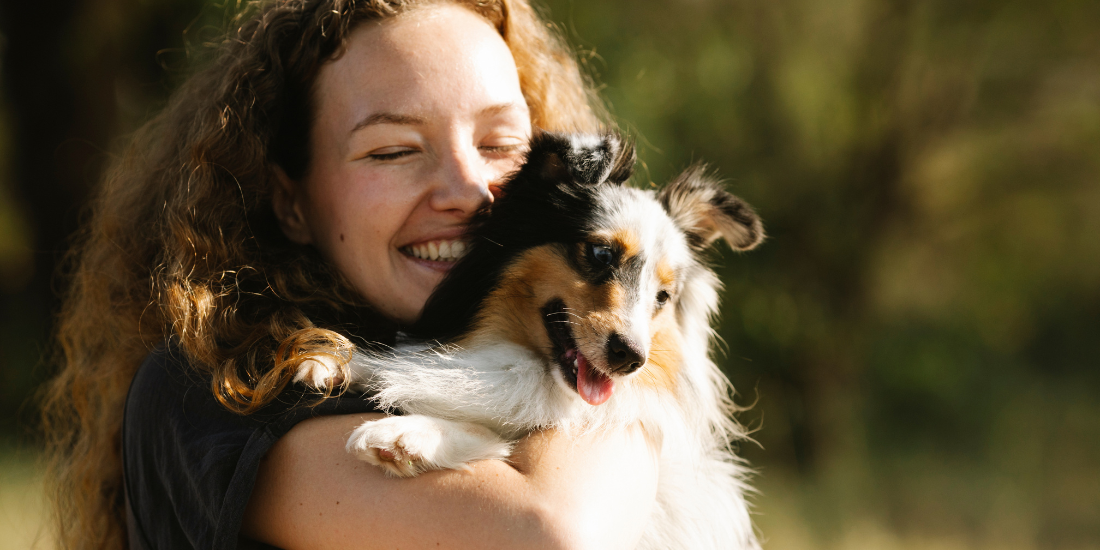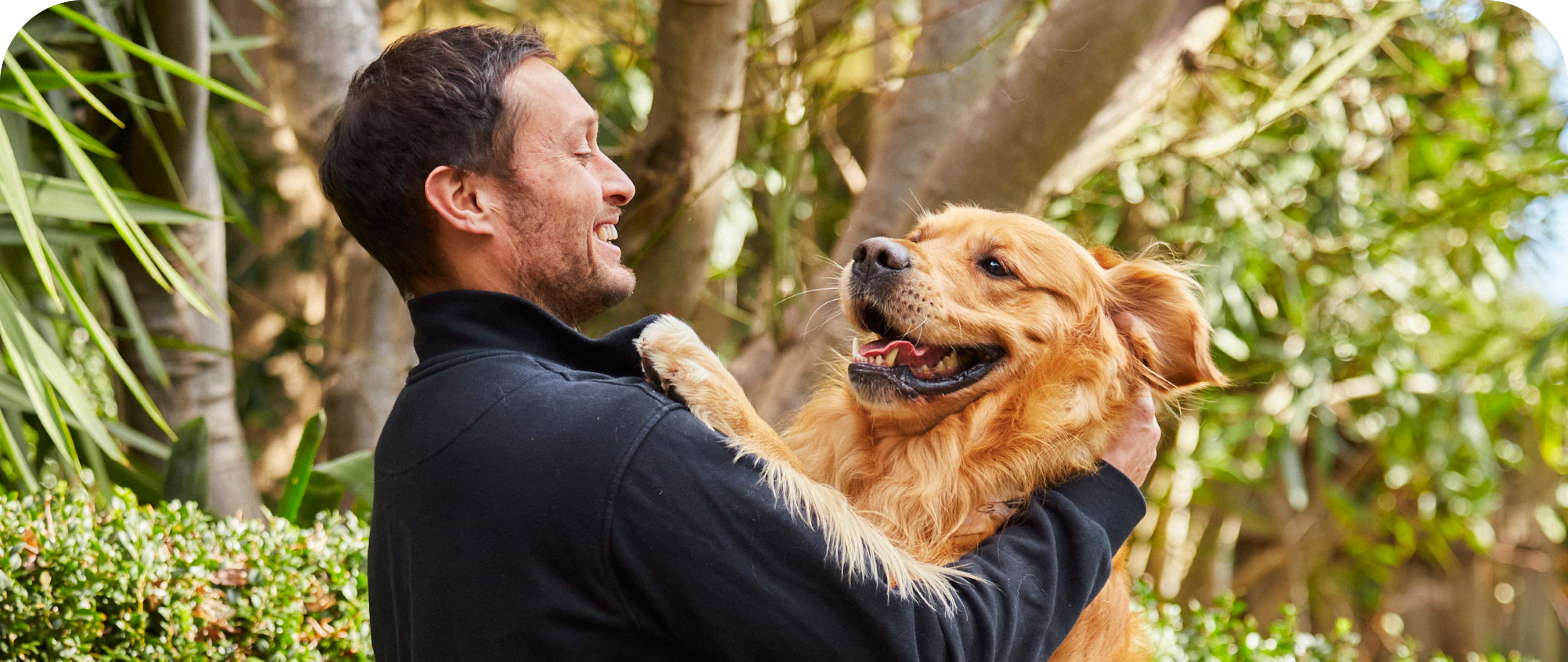
Prepare to dive into the world of responsible pet parenting, where love meets logic. For desexed dogs, meaning neutered for males and females and specifically castrated for males and spayed for females, forever friendships can bloom without the risk of unplanned litters and disease transmission. In this guide, we're unravelling the essential yet often misunderstood topic of desexing. So, if you're the proud parent of a rowdy Rover, fasten your seatbelts because we're about to unleash some valuable insights.
Timing is key: When to desex your dog
We've explored the 'whys' of dog desexing, and now it's time to tackle the 'whens.' When should you consider desexing your puppy? Well, it's not a one-size-fits-all answer. The optimal timing can vary based on your dog's breed, size, sex, household dynamics, and even their genetic history.
There is no universal answer
In the realm of desexing dogs, there's no universal rule that applies to all breeds, sizes, or genders. Your household situation can influence the decision, and even the pedigree of your dog – their family genetics – can come into play.
Seeking Guidance
Given this complexity, we strongly recommend discussing your desexing decision with your vet and, if necessary, consulting your breeder. They may have valuable insights into your dog's unique circumstances and medical family history. Breed-specific resources can also be a helpful guide.
Some General Guidelines
Small Breed Dogs: Most small breeds are typically recommended for neutering around 6 months of age. However, exceptions exist. For instance, dachshunds, female shih tzus, male Boston terriers, and miniature poodles might follow different schedules.
When to Desex Male Dogs?
Large Breed Dogs: Large breed males are often best neutered after reaching skeletal maturity, typically around 12-18 months.
Giant Breed Dogs: For giant breeds, waiting until they're skeletally mature, around 18-24+ months, is often advised.
Exceptions and Considerations
Exceptions do exist, primarily when household factors come into play. If your dog has a tendency to roam or displays aggression towards other dogs or household members, earlier neutering might be recommended. However, in some cases, aggression, anxiety and extreme fears are increased in desexed dogs, so your dog’s situation may well vary from Rover down the road. Genetics also come into play, and not always in a good way. Different breeds carry certain susceptibilities to conditions such as prostatic neoplasia, testicular neoplasia, cranial cruciate disease, bone cancer and more.
When to desex female dogs
Large and Giant Breed Females
For large and giant breed females, the recommendations can vary significantly. Factors include genetic predispositions to diseases like cranial cruciate disease, mammary cancer, mast cell tumours, bone cancers, lymphoma, urinary incontinence, and more. Your ability to prevent mating during a female dog's heat cycle, the presence of other dogs in your household, and your family situation are crucial considerations.
In this complex decision, the guidance of your veterinarian and breeder, along with your understanding of your dog's unique needs, will help determine the optimal time for desexing. Keep in mind the aim is to guarantee a lengthy, healthy, and joyful life for your beloved companion.
The Surgery: What to Expect
So, you've determined the right time for your dog's desexing – now, let's dive into the 'how.' The surgery process differs for males and females, and it's essential to understand what to expect.
For Males
Desexing male dogs is usually a routine procedure. It involves anesthetising your dog, after which the testicles are removed. This can be done through either one or two incisions into the prescrotal region (just in front of the scrotum) or sometimes directly in the scrotum itself. To prevent hemorrhage, the blood vessels are ligated during surgery. Pain relief and local anesthesia are given to ensure your dog's comfort.
Recovery for males is generally quick. Many dogs are back to their usual selves within just a few days. It's crucial to monitor their food intake post-surgery to prevent weight gain. Reducing their calorie intake slightly can help them maintain a healthy weight as they recover.
For Females
Desexing female dogs that are not in heat, overweight, or pregnant is typically a straightforward procedure. It involves removing either the ovaries or both the ovaries and the uterus through an abdominal incision. Ovary-sparing options may become available in specific situations. Similar to males, vessels are ligated to prevent hemorrhage, and pain relief and local anesthesia are provided for comfort.
Careful observation during the recovery period is essential for females. They should be confined for approximately two weeks to allow their internal stitches to heal. Veterinarians may use internal sutures that dissolve over time or external sutures that need to be removed around 10 days post-surgery. As with males, controlling calorie intake after surgery is crucial to prevent weight gain.
Remember, desexing your dog isn't just about controlling the pet population; it's a commitment to their well-being. Responsible owners help their pets to live longer, healthier and happier lives.
Of course, the decision to desex your pet should be made with love and consideration. Consult your vet first, and together, let's ensure our four-legged companions enjoy the best life has to offer – a life full of love, health, and endless tail wags.

About The Author
Dr Terryne Loney
Consultant Veterinarian | Pets: Roni, Barker and Corbett (Cats)
I have 30 years experience in companion animal practice and part of a nationwide veterinary senior leadership team. With a background of interest in all aspects of animal care, emotionally and physically, I am an advocate for wellness and fear free handling as well as dentistry, internal medicine, dermatology, oncology, and safe anaesthesia during surgery.
Enjoyed This?
Explore more ....



